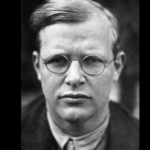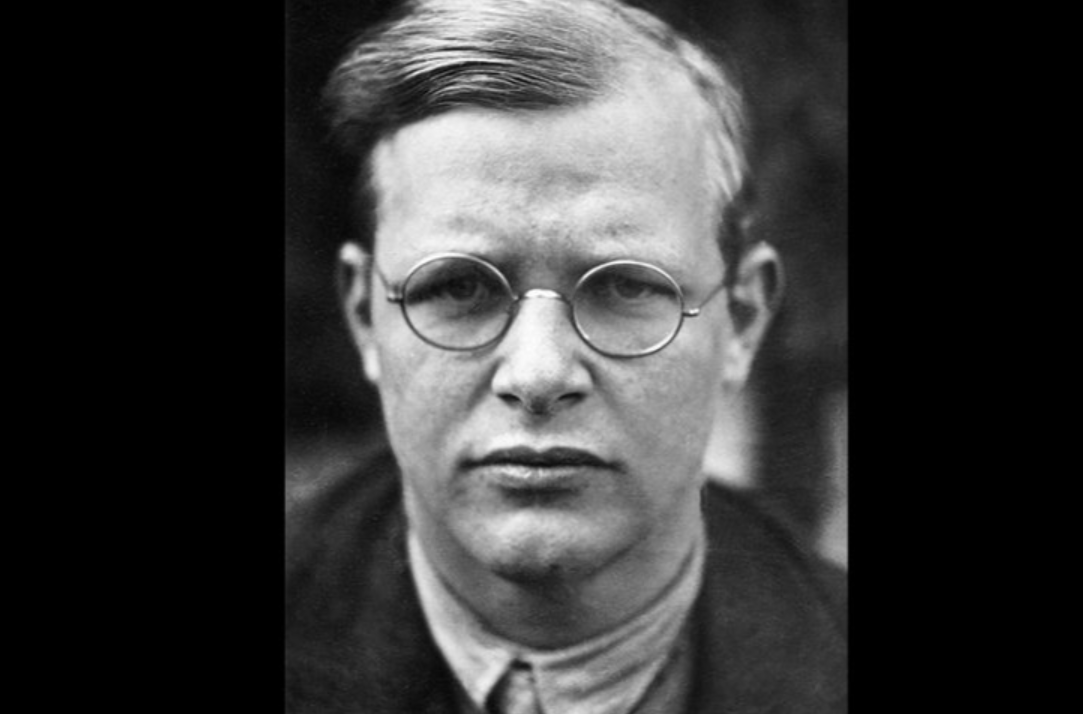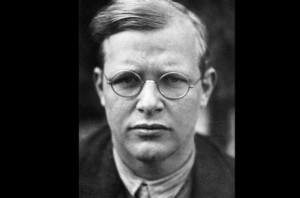
Bonhoeffer: The Agent of Grace!!!
The movie
Dietrich Bonhoeffer was a prominent German Lutheran pastor and theologian whose life and work were profoundly influenced by the historical context of the early 20th century. Born in 1906 in Breslau, Germany, Bonhoeffer grew up in a family deeply rooted in intellectual and cultural traditions.
His upbringing fostered an early interest in theology and philosophy, leading him to pursue religious studies at various esteemed institutions, including the University of Tübingen and the University of Berlin. Here, he was exposed to the liberal theology of the time and began to develop his own ideas about faith, ethics, and the role of the church in society.
Bonhoeffer’s education was marked by significant influences from various theologians, including Karl Barth, whose emphasis on the sovereignty of God would leave a lasting impact on Bonhoeffer’s theological perspective.
Search the world’s largest video collection plus millions of music tracks, sound effects, motion graphics and images
His early works, such as “The Cost of Discipleship,” reflect his belief that true faith requires a commitment to social justice and moral integrity, particularly in the face of oppressive regimes. This commitment became increasingly pertinent during the rise of Adolf Hitler and the Nazi regime, which posed a significant challenge to Christian ethics and the church’s role in politics.
As a prominent figure within the Confessing Church—a movement opposing the Nazi-influenced German Christian movement—Bonhoeffer became a vocal critic of the regime’s policies and actions. His theological writings and public speeches conveyed his resolve to advocate for the marginalized and those persecuted under Nazi rule.
This moral conviction was central to Bonhoeffer’s thinking and shaped his eventual decision to engage in resistance efforts against the regime.
Understanding Bonhoeffer’s early life and educational influences is crucial to grasp the complexity of his character and the moral dilemmas he faced throughout his life.
The Rise of Nazi Germany and Bonhoeffer’s Response
The rise of Nazi Germany in the 1930s marked a significant shift in European politics and society. Under the leadership of Adolf Hitler, the National Socialist Party implemented a regime characterized by authoritarianism, anti-Semitism, and the suppression of dissent.
Initially, Bonhoeffer’s response to the Nazi rise was one of cautious observation, expressed through his sermons and writings. He articulated a theological perspective that emphasized the necessity of active engagement in social justice, a calling that became increasingly urgent as he witnessed the encroaching totalitarianism surrounding him.
His theological reflections began to take on a political dimension, prompting him to question not only the ecclesiastical response but also the broader implications of faith in a world where evil was rising unchecked.
This journey culminated in Bonhoeffer’s involvement with a group of conspirators who aimed to assassinate Hitler, a decision that presented grave ethical dilemmas for him as a Christian leader. Faced with the choice between passive compliance and active resistance, he navigated the complexities of fidelity to his faith while recognizing the imperative to stand against tyranny.
Bonhoeffer’s evolving response to the Nazi regime poignantly illustrates the challenges many faced in reconciling their convictions with the harsh realities of their time.
The Plot to Assassinate Hitler
In the pivotal years leading up to World War II, Dietrich Bonhoeffer emerged as a significant figure within the German resistance movement against Adolf Hitler’s oppressive regime.
This clandestine group, comprising military officers, politicians, and members of the clergy, shared a collective conviction that drastic measures were necessary to avert further atrocities and restore moral order in Germany.
Bonhoeffer’s involvement in the plot was rooted in his deep sense of responsibility to act against the regime’s inhumane policies. His participation reflected a profound moral dilemma as he sought to reconcile his Christian beliefs with the political realities of the time.
The covert operations included gathering intelligence, considering the feasibility of various assassination approaches, and bolstering public sentiment against Hitler’s regime. Bonhoeffer grappled with the ethical implications of these actions, viewing them not merely as political maneuvers but as a response to a spiritual crisis that demanded urgent intervention.
The stakes were alarmingly high; every participant in the conspiracy faced the constant threat of exposure, arrest, and execution. Bonhoeffer was acutely aware of this peril yet remained resolute in his determination to proceed, firmly believing that faith necessitated action.
His theological reflections on grace and responsibility underscored the notion that sometimes, standing against evil involves taking drastic steps that challenge conventional notions of morality.
Partner Boost
This unique intersection of faith and political resistance characterized Bonhoeffer’s journey and highlighted the complex ethical landscape navigated by those who plotted against Hitler’s regime.
Final Days and Legacy of Bonhoeffer
Dietrich Bonhoeffer’s final days were marked by unwavering conviction and profound sacrifice. After being involved in the German resistance against Hitler and planning to assassinate the Führer, Bonhoeffer was arrested in April 1943.
During his time in prison, he penned numerous letters and essays that conveyed his theological insights, emphasizing the importance of community, faith, and moral responsibility under oppressive circumstances.
Bonhoeffer’s fate was ultimately sealed when he was executed by hanging on April 9, 1945, just weeks before the end of the war in Europe. His death was a poignant testament to his life’s work—a life dedicated to the belief that grace necessitates action in the face of injustice.
The themes of sacrifice, faith, and grace resonate powerfully through his final moments, illustrating the depth of his convictions. He viewed grace not merely as a theological concept but as a call to engage actively in the world, a perspective that continues to inspire many today.
Share this content:
























